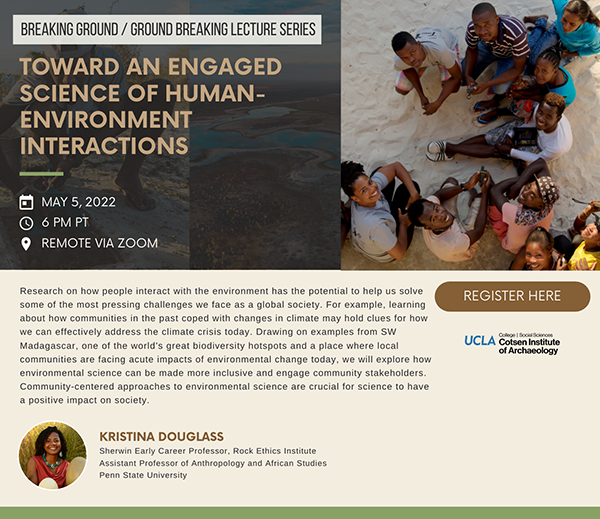Past Events
Interested in Cotsen events? Sign up for our mailing list.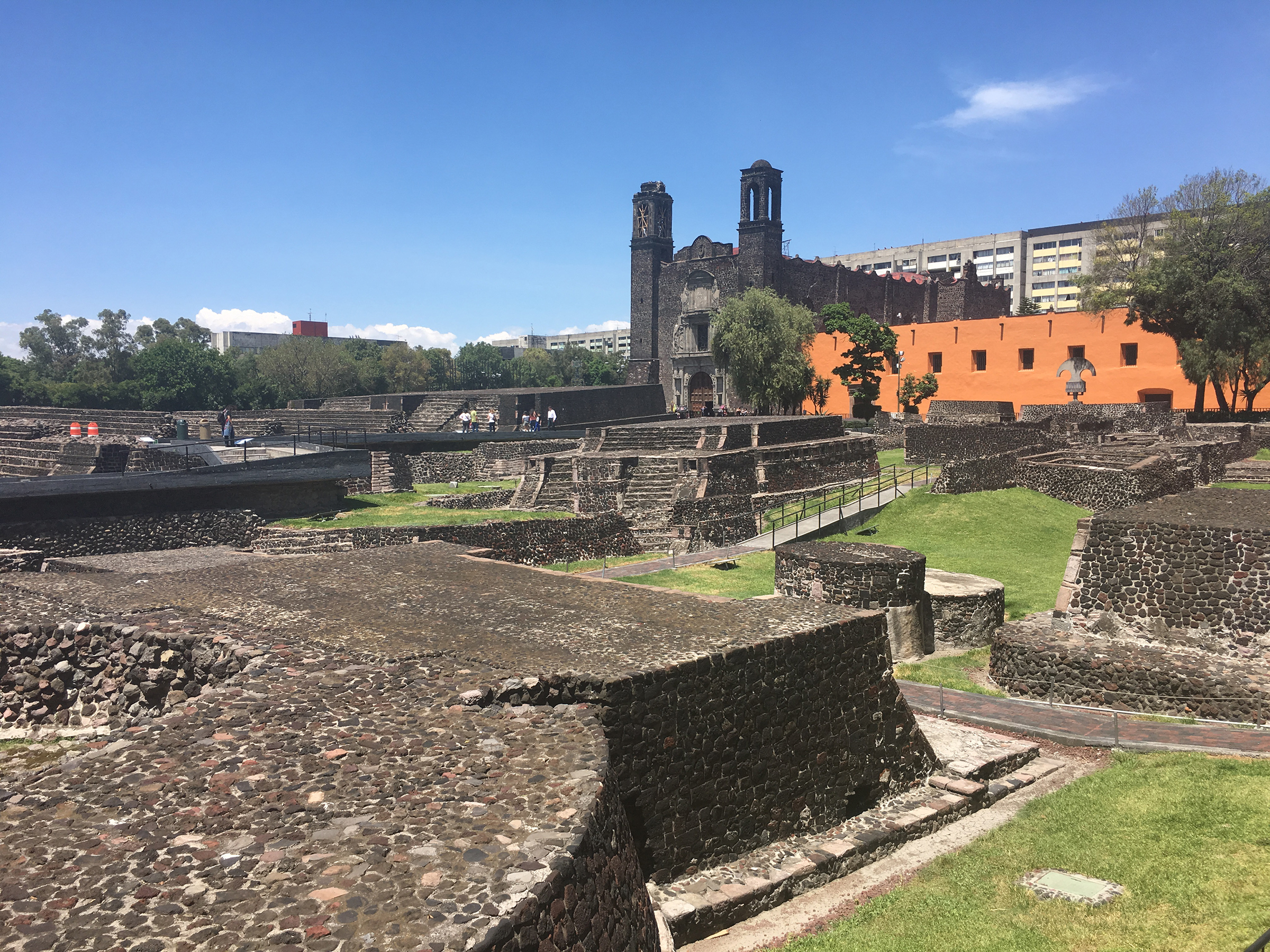 Mexico of five centuries ago was witness to one of the most momentous encounters between human societies, when a group of Spaniards led by Hernando Cortés joined forces with tens of thousands of Mesoamerican allies to topple the mighty Aztec Empire. The violent clash that culminated in the Aztec-Spanish war of 1519-1521 and the new colonial order it created were millennia in the making, entwining the previously independent cultural developments of both sides of the Atlantic. In this talk, Carballo provides a deep history of this encounter based in archaeology and material culture to consider the richly layered cultures of Mexico and Spain and their interweaving in and encounter characterized by conquest and colonialism but also strategic action and resilience on the part of Native peoples.
Mexico of five centuries ago was witness to one of the most momentous encounters between human societies, when a group of Spaniards led by Hernando Cortés joined forces with tens of thousands of Mesoamerican allies to topple the mighty Aztec Empire. The violent clash that culminated in the Aztec-Spanish war of 1519-1521 and the new colonial order it created were millennia in the making, entwining the previously independent cultural developments of both sides of the Atlantic. In this talk, Carballo provides a deep history of this encounter based in archaeology and material culture to consider the richly layered cultures of Mexico and Spain and their interweaving in and encounter characterized by conquest and colonialism but also strategic action and resilience on the part of Native peoples.
6pm Lecture
7pm Reception
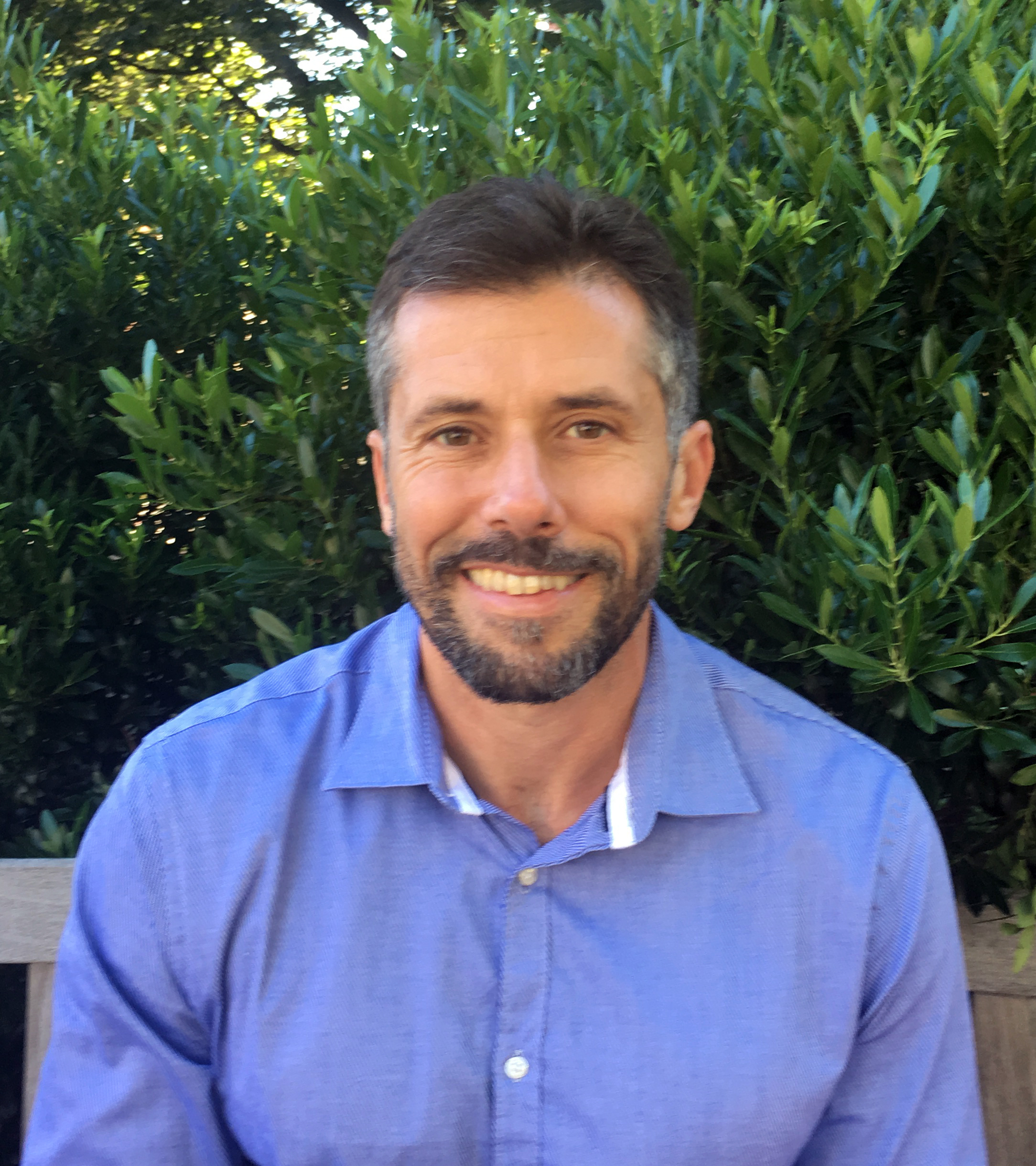 David Carballo is Professor of Anthropology, Archaeology, and Latin American Studies at Boston University. He completed his graduate training (2001 MA, 2005 PhD) at UCLA and specializes in the archaeology of Latin America, especially central Mexico and with topical interests in households, urbanism, religion, social inequality, and working with contemporary communities in understanding ancient ones. Current investigations focus on Teotihuacan’s Tlajinga district, a cluster of non-elite neighborhoods on the periphery of what was then the largest city in the Americas. Recent books include Urbanization and Religion in Ancient Central Mexico (2016), Teotihuacan: The World Beyond the City (ed., 2020), Collision of Worlds: A Deep History of the Fall of Aztec Mexico and the Forging of New Spain (2020), and Collective Action and the Reframing of Early Mesoamerica (2023).
David Carballo is Professor of Anthropology, Archaeology, and Latin American Studies at Boston University. He completed his graduate training (2001 MA, 2005 PhD) at UCLA and specializes in the archaeology of Latin America, especially central Mexico and with topical interests in households, urbanism, religion, social inequality, and working with contemporary communities in understanding ancient ones. Current investigations focus on Teotihuacan’s Tlajinga district, a cluster of non-elite neighborhoods on the periphery of what was then the largest city in the Americas. Recent books include Urbanization and Religion in Ancient Central Mexico (2016), Teotihuacan: The World Beyond the City (ed., 2020), Collision of Worlds: A Deep History of the Fall of Aztec Mexico and the Forging of New Spain (2020), and Collective Action and the Reframing of Early Mesoamerica (2023).
Contact Michelle Jacobson
Email mjacobson@ioa.ucla.edu
Phone
Archaeology and anthropology were once closely related fields of research. Today, they have drifted apart. David Wengrow reflects on his book, co-authored with David Graeber: The Dawn of Everything: A New History of Humanity, which is an attempt to see what happens when you put them back together again, after a period of mutual estrangement. The results are surprising, and have significant implications across the social sciences, presenting an overall picture of human history and development that is starkly at odds with received theories and conventional wisdom.
June 8, 2023
In-person at the Lenart Auditorium, Fowler Museum
6pm Lecture
7pm Reception
Email mjacobson@ioa.ucla.edu to RSVP for the in-person lecture and reception (required).
David Wengrow is Professor of Comparative Archaeology at the Institute of Archaeology, University College London (UCL) and has been a visiting professor at New York University, the University of Auckland, and the University of Freiburg. David has conducted archaeological fieldwork in Africa and the Middle East. He is the author of three books including What Makes Civilization?, and co-author with David Graeber of The Dawn of Everything: A New History of Humanity.
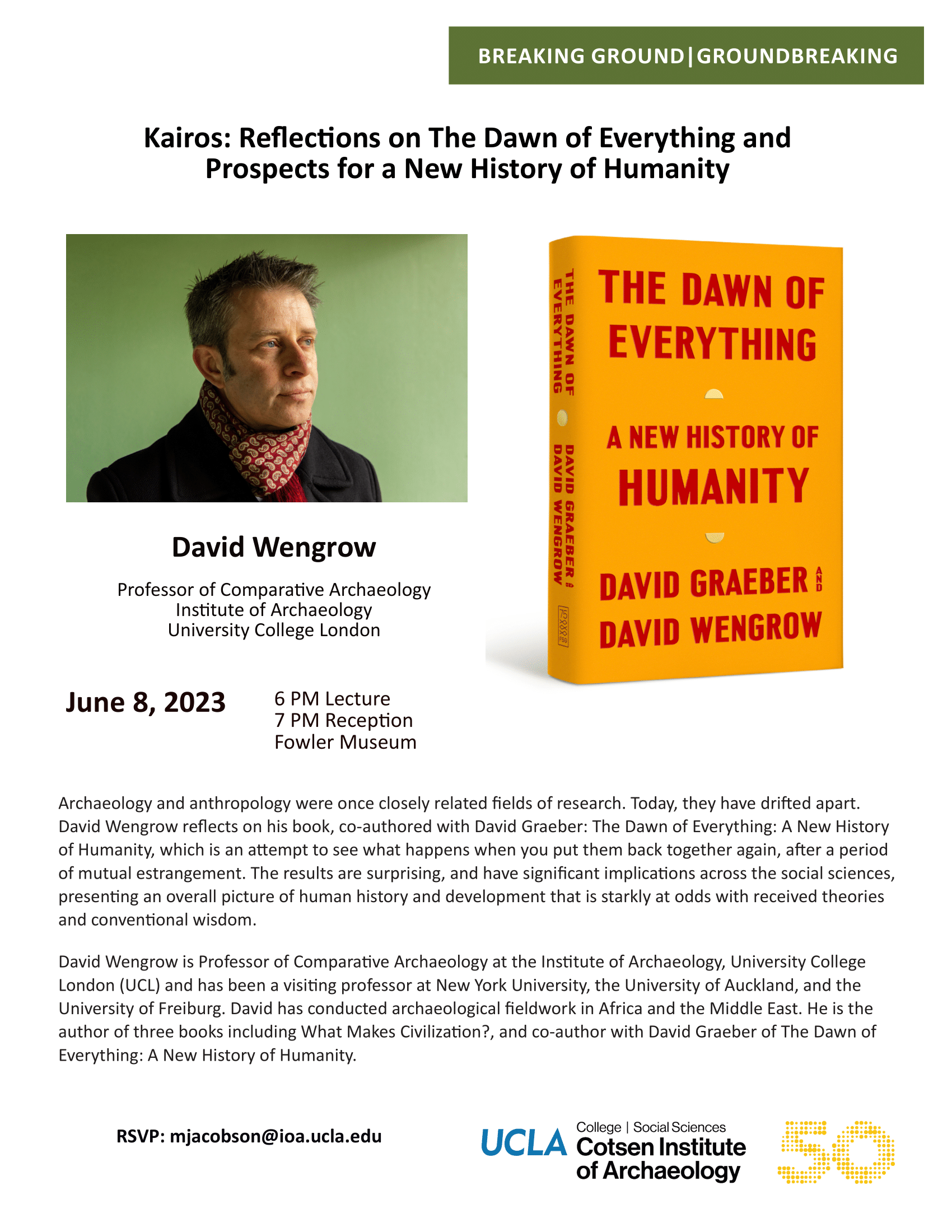
Contact Michelle Jacobson
Email mjacobson@ioa.ucla.edu
Phone
The newest publication from the Cotsen Institute of Archaeology Press, Archaeology Outside the Box, intends to make contemporary archaeology germane to the general public as well as researchers in other disciplines. In thirty-one richly illustrated chapters, a variety of projects is presented by an international group of archaeologists, anthropologists, architects, and artists. These aim to broaden the applicability of archaeology by reflecting on archaeological remains in novel ways or addressing contemporary concerns with archaeological theory and research methods. Demonstrating the fascinating and pertinent nature of archaeology, the authors go far beyond its definition as a discipline that unearths obiects of ancient material culture.
June 1, 2023
In-person at the Luskin Conference Center
6pm Lecture
7pm Reception
Online (Zoom)
6pm Lecture
Email mjacobson@ioa.ucla.edu to RSVP for the in-person lecture and reception by May 25 (required) or register for Zoom here.
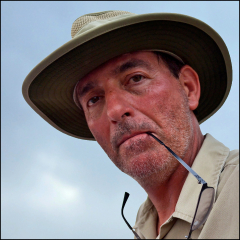 Hans Barnard has both an MD, and a PhD in archaeology from Leiden University in the Netherlands. Since 1990 he has participated in archaeological field projects throughout the world. He has published more than a hundred articles and book chapters, as well as several books, among which are the edited volumes The Archaeology of Mobility: Old World and New World Nomadism, with Willeke Wendrich; The History of the Peoples of the Eastern Desert, with Kim Duistermaat; and most recently, Archaeology Outside the Box, all published by the Cotsen Institute of Archaeology Press.
Hans Barnard has both an MD, and a PhD in archaeology from Leiden University in the Netherlands. Since 1990 he has participated in archaeological field projects throughout the world. He has published more than a hundred articles and book chapters, as well as several books, among which are the edited volumes The Archaeology of Mobility: Old World and New World Nomadism, with Willeke Wendrich; The History of the Peoples of the Eastern Desert, with Kim Duistermaat; and most recently, Archaeology Outside the Box, all published by the Cotsen Institute of Archaeology Press.
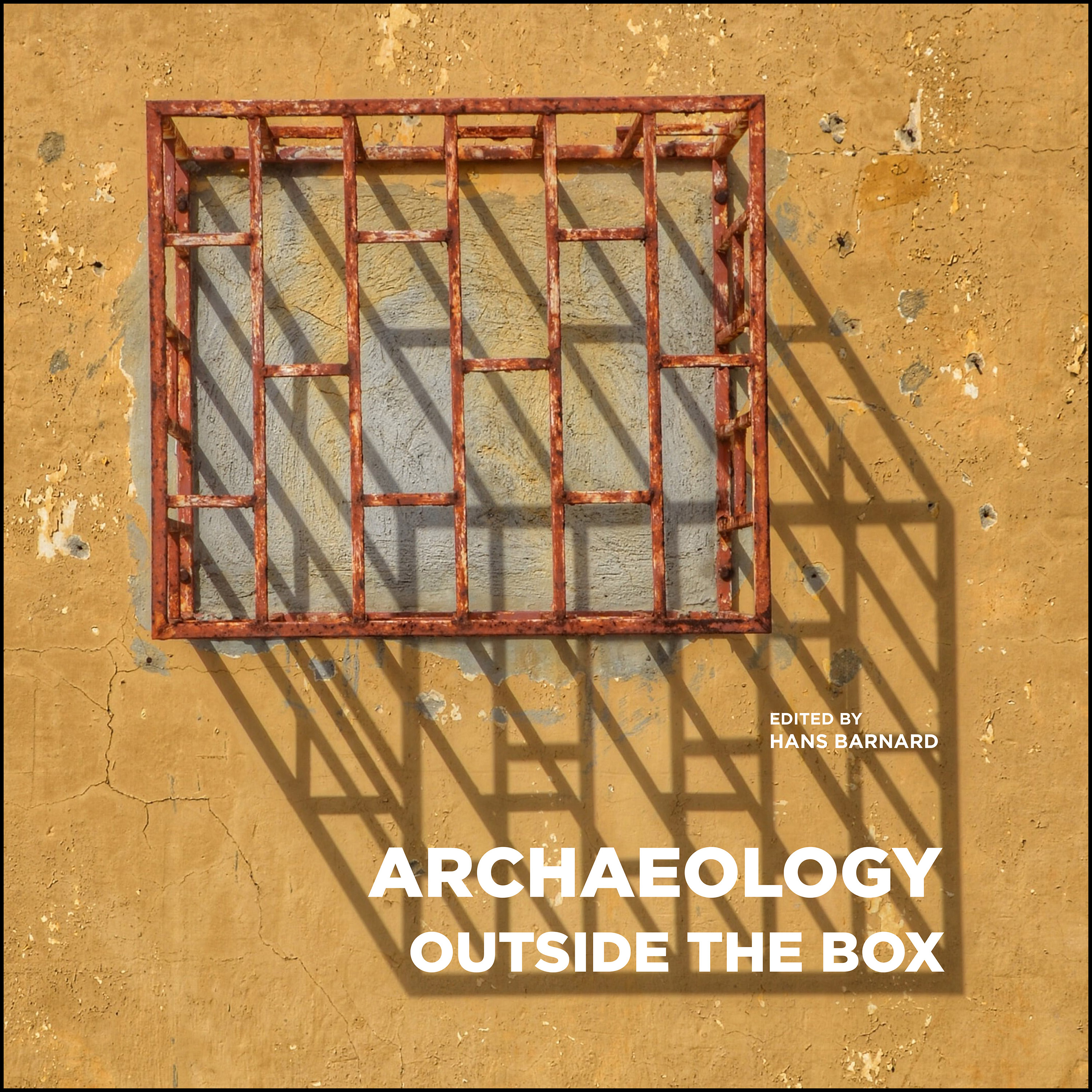
Contact Michelle Jacobson
Email mjacobson@ioa.ucla.edu
Phone
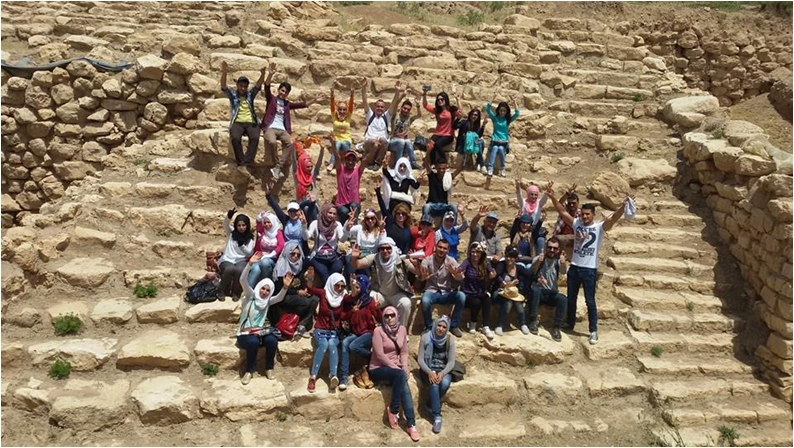 A conversation with
A conversation with
Giorgio Buccellati
Marilyn Kelly-Buccellati
Maryanne Wolf
February 16, 2023
6:00 PM PT
Remote via Zoom
Join us in unearthing the secrets of a 5,000-year-old civilization when cities first began to take shape. In northeastern Syria, the Hurrian city of Urkesh had been excavated and studied for twenty-five years before the work was halted by war. Learn how the study of Urkesh has been impacted by plundering and defacing but continues to engage the local community and provide impactful records even beyond archaeology. Archaeologists Giorgio Buccellati and Marilyn Kelly-Buccellati will be joined by neuropsychologist Maryanne Wolf for a conversation where cognitive psychology meets archaeology.
Registration Required
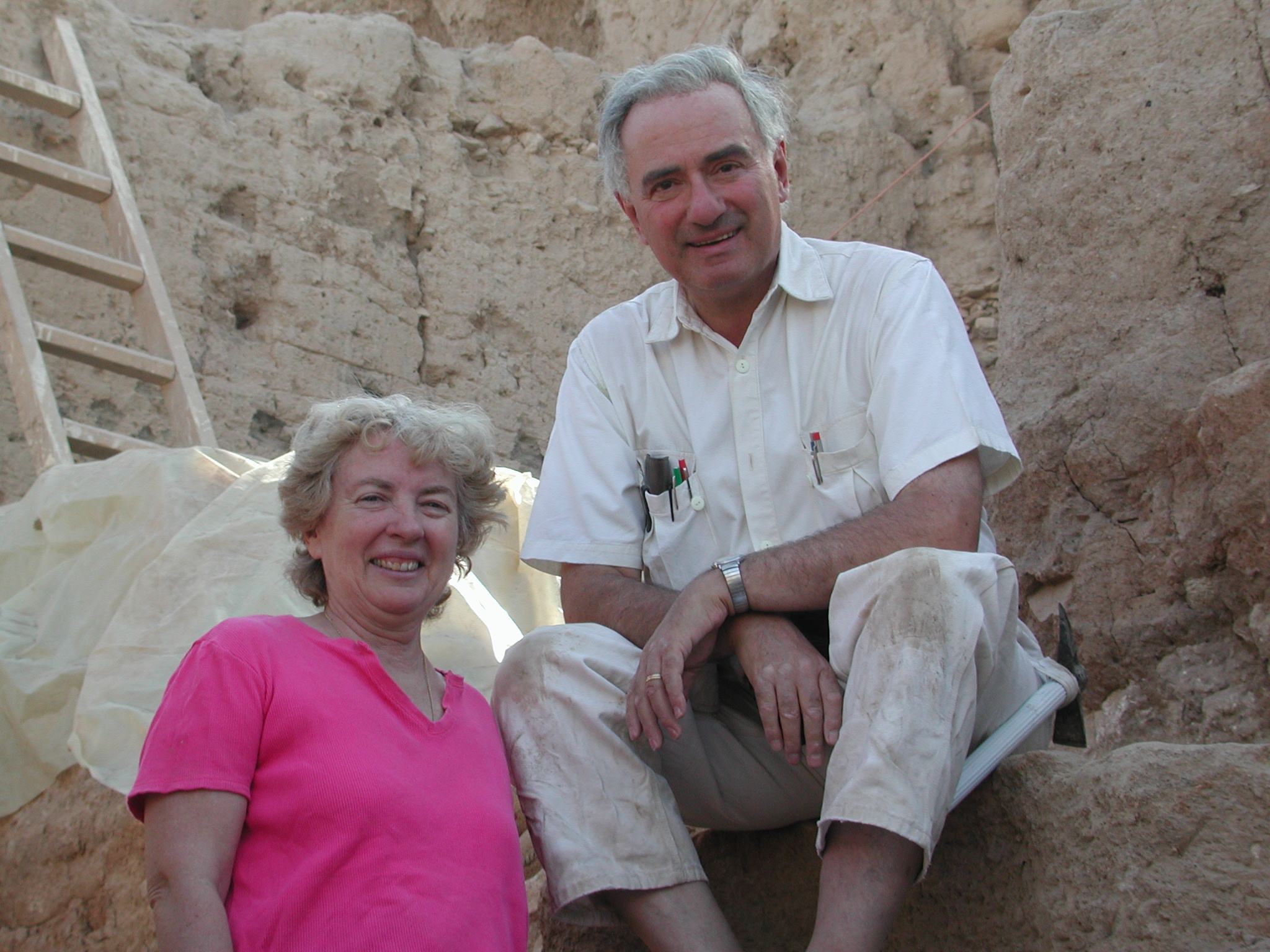
Contact Michelle Jacobson
Email mjacobson@ioa.ucla.edu
Phone
The Cotsen Institute of Archeology Press invites you to the latest Author Spotlight with
Stephen Dueppen
Associate Professor, Department of Anthropology
University of Oregon
Mounded sites (tells) are common throughout West Africa, including in western Burkina Faso where clusters of mounds dating to the past three millennia are common. Extensive fieldwork at the long inhabited and well-preserved site of Kirikongo (ca. 100—1650 AD), has established that the community started as a small farming settlement, grew to a large community centered on the village’s founders, rejected inequalities in an egalitarian revolution, and survived the Black Death pandemic. This talk explores patterns in architecture, material culture and organic remains (animal bones and botanical remains) to argue that the mounds at Kirikongo are not only residential, but also stratified ancestor shrines whose ritual deposits inform on the divine associations of different houses in a ritual landscape.
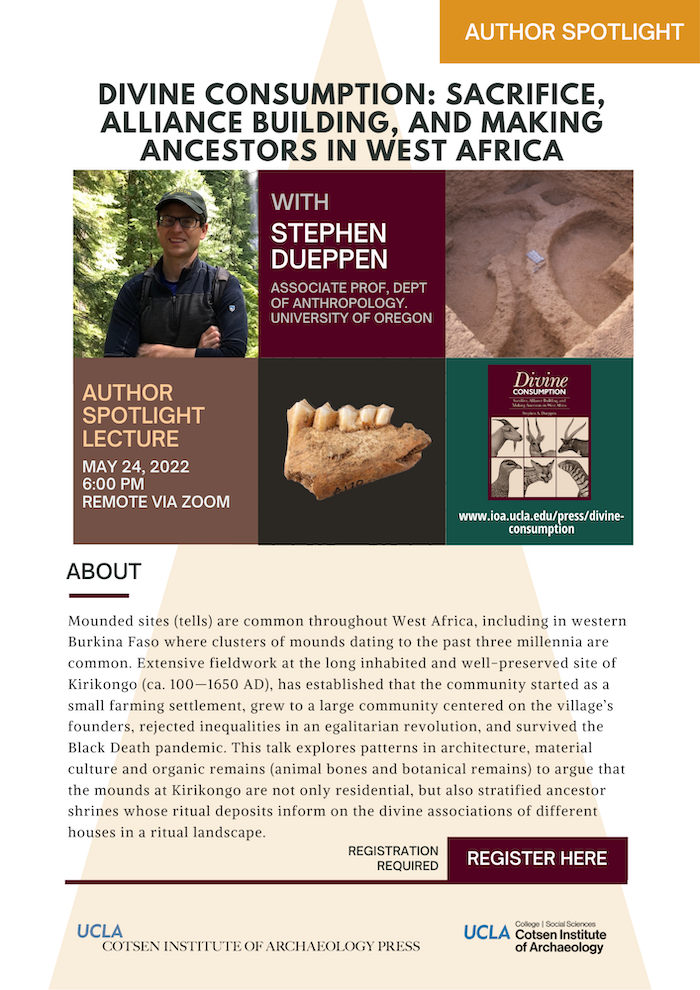
Contact Michelle Jacobson
Email mjacobson@ioa.ucla.edu
Phone
You are cordially invited to The Vishap: From Fairy Tale to Reality (click on link for schedule)
Sunday May 15th, 2022 at 2:00 - 6:00pm PDT
The Narekatsi Chair in Armenian Studies presents "The Vishap: From Fairy Tale to Reality," by Dr. Arsen Bobokhyan. This event is co-sponsored by the Promise Armenian Institute, the Ararat-Eskijian Museum, and the National Association for Armenian Studies & Research with the participation of the Research Program in Armenian Archaeology and Ethnography at the Cotsen Institute of Archaeology and the Institute for Archaeology and Ethnography of the Armenian Academy of Sciences.
2:00 - 3:30 PM Royce Hall 314
Illustrated Lecture on documenting and preserving the dragon-stones of Armenia from the 2nd millennium BCE by Dr. Arsen Bobokhyan (PI of this project and Director of the Institute of Archaeology and Ethnography in Yerevan), followed by a documentary of the dragon-stones and the initial phase of their investigation and restoration.
3:30 - 6:00 PM Powell Rotunda
Presentation of Dr. Bobokhyan's latest monograph Atrpet’s “Scientific Adventures” and Discovery of the Vishap Stelae (in Armenian), followed by a guided tour of an exhibit of thirty high-resolution images of the dragon-stones by Dr. Bobokhyan and recital by the UCLA Armenian Ensemble. The event will conclude with a Wine and Cheese Reception.
The event will livestream on the Ararat-Eskijian Museum's Facebook and YouTube pages.
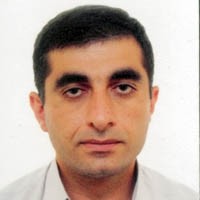 Arsen Bobokhyan is Directory of the Institute for Archaeology and Ethnography of the Armenian Academy of Sciences. He received his Ph.D. from the Institute of Prehistory at the University of Tuebingen (2008) and has since been an Asst. Professor of History at Yerevan State University and Lecturer at the American University of Armenia. The author of three books and over a hundred articles, he has served as editor of a number of scholarly journals and has been invited as visiting professor at several universities in the German-speaking world. His research interests include the early Archaeology of the Armenian Plateau and the Caucasus, the Near East and Asia Minor, Cultural Relations, Ancient Barter and Weight Systems and Religion and Cult.
Arsen Bobokhyan is Directory of the Institute for Archaeology and Ethnography of the Armenian Academy of Sciences. He received his Ph.D. from the Institute of Prehistory at the University of Tuebingen (2008) and has since been an Asst. Professor of History at Yerevan State University and Lecturer at the American University of Armenia. The author of three books and over a hundred articles, he has served as editor of a number of scholarly journals and has been invited as visiting professor at several universities in the German-speaking world. His research interests include the early Archaeology of the Armenian Plateau and the Caucasus, the Near East and Asia Minor, Cultural Relations, Ancient Barter and Weight Systems and Religion and Cult.
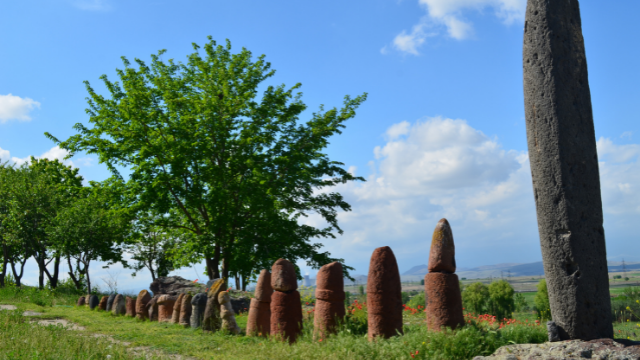
Vishapakar (Photo: Sonashen via Wikimedia Commons, 2013; cropped. CC BY-SA 3.0)
Contact Kristine Martirosyan-Olshansky
Email kristineolsh@ucla.edu
Phone
Kristina Douglass, Sherwin Early Career Professor in the Rock Ethics Institute and Assistant Professor of Anthropology and African Studies
Research on how people interact with the environment has the potential to help us solve some of the most pressing challenges we face as a global society. For example, learning about how communities in the past coped with changes in climate may hold clues for how we can effectively address the climate crisis today. Drawing on examples from SW Madagascar, one of the world’s great biodiversity hotspots and a place where local communities are facing acute impacts of environmental change today, we will explore how environmental science can be made more inclusive and engage community stakeholders. Community-centered approaches to environmental science are crucial for science to have a positive impact on society.
Kristina Douglass
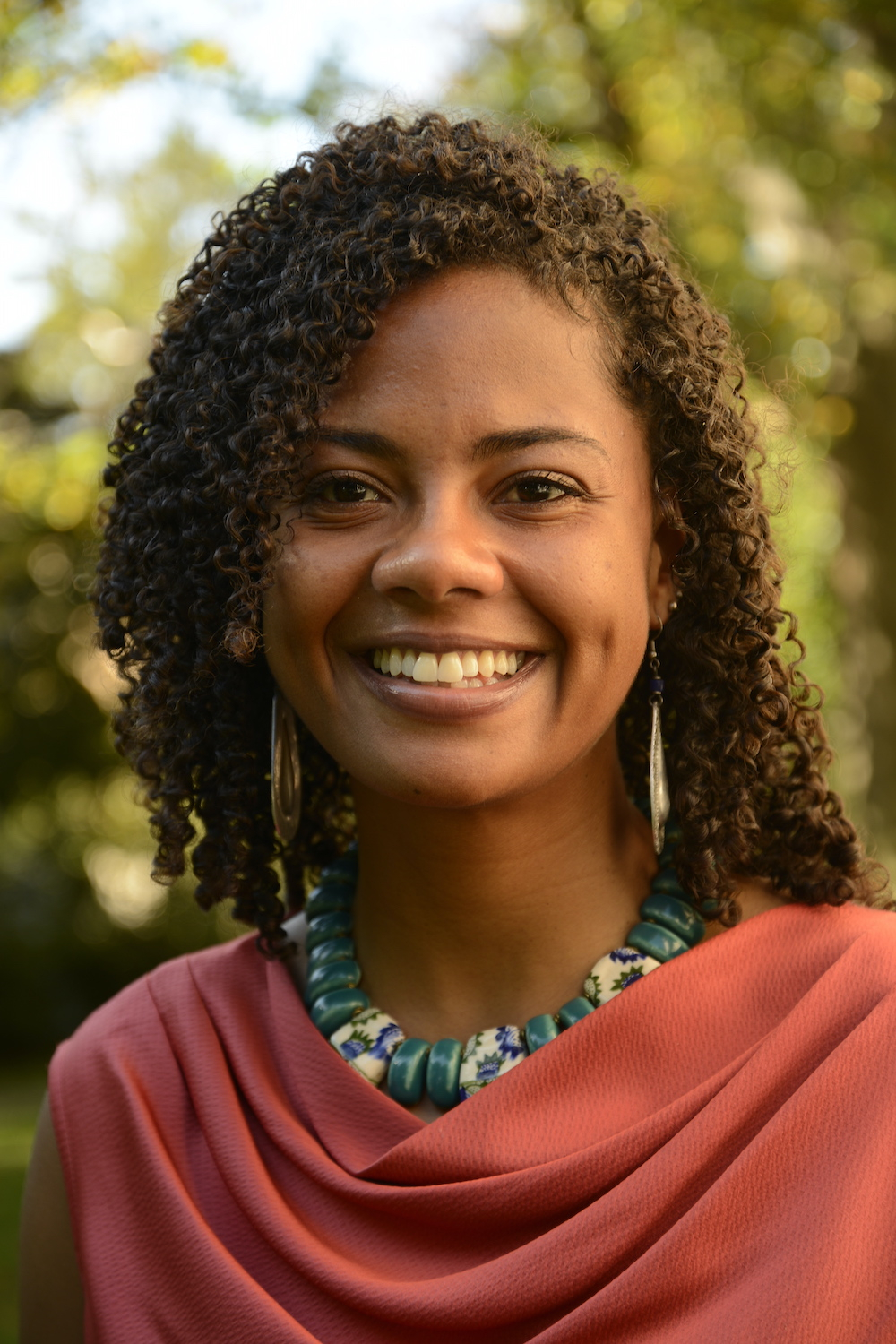 Kristina Douglass is an archaeologist who investigates how people, land-and seascapes co-evolve. She is the Joyce and Doug Sherwin Early Career Professor in the Rock Ethics Institute and Assistant Professor of Anthropology and African Studies at Penn State University. Sheis a Penn State Institutes for Energy and the Environment co-funded faculty member and a faculty affiliate of the Institute for Computational and Data Sciences. Douglass is also a Smithsonian Institution Research Associate. Her work is grounded in collaborations with local, Indigenous, and descendant (LID) communities as equal partners in the co-production of science, and the recording, preservation and dissemination of LID knowledge. Douglass and her collaborators aim to contribute long-term perspectiveson human-environment interactions to public debates, planning and policymaking on the issues of climate change, conservation, and sustainability. Since 2011 Douglass has directed the Morombe Archaeological Project (MAP), based in the Velondriake Marine Protected Area. This territory is home to diverse LID communities, including Vezo fishers, Mikea foragers and Masikoro herders. The MAP team is made up of Velondriake LID community members, and an international group of graduate students and postdoctoral researchers. The MAP is anchored at Penn State to the Olo Be Taloha Lab (@OBTLab andhttps://obtlab.la.psu.edu) for African Environmental Archaeology, which Douglass also directs. Douglass is a mother, singer, dancer, Capoeirista, SCUBA diver and avid gardener, all of which intersect in essential ways with her work as an archaeologist.
Kristina Douglass is an archaeologist who investigates how people, land-and seascapes co-evolve. She is the Joyce and Doug Sherwin Early Career Professor in the Rock Ethics Institute and Assistant Professor of Anthropology and African Studies at Penn State University. Sheis a Penn State Institutes for Energy and the Environment co-funded faculty member and a faculty affiliate of the Institute for Computational and Data Sciences. Douglass is also a Smithsonian Institution Research Associate. Her work is grounded in collaborations with local, Indigenous, and descendant (LID) communities as equal partners in the co-production of science, and the recording, preservation and dissemination of LID knowledge. Douglass and her collaborators aim to contribute long-term perspectiveson human-environment interactions to public debates, planning and policymaking on the issues of climate change, conservation, and sustainability. Since 2011 Douglass has directed the Morombe Archaeological Project (MAP), based in the Velondriake Marine Protected Area. This territory is home to diverse LID communities, including Vezo fishers, Mikea foragers and Masikoro herders. The MAP team is made up of Velondriake LID community members, and an international group of graduate students and postdoctoral researchers. The MAP is anchored at Penn State to the Olo Be Taloha Lab (@OBTLab andhttps://obtlab.la.psu.edu) for African Environmental Archaeology, which Douglass also directs. Douglass is a mother, singer, dancer, Capoeirista, SCUBA diver and avid gardener, all of which intersect in essential ways with her work as an archaeologist.
Contact Michelle Jacobson
Email mjacobson@ioa.ucla.edu
Phone
Dr. Stephen E. Nash
Director of Anthropology and the Avenir Conservation Center
Denver Museum of Nature and Science
Thursday, April 28 at 12:00pm PT
Hybrid event – In-person at A222 Fowler and Online (Zoom)
The Cotsen Institute of Archaeology invites you to a special talk presented by the Waystation Program:
During the last two decades, increasing awareness of the frequently illicit origin of archaeological objects has resulted in changes to acquisition policies in American museums. In addition, many museums are re-evaluating the ethics of collecting and working with indigenous communities to return or reinterpret sensitive cultural heritage. For more than 15 years, the Denver Museum of Nature & Science has taken a leadership role in repatriation and international returns by going above and beyond the letter of the law(s), using the principles of justice, dialogue, reciprocity, and respect to guide their activities. This talk examines the museum’s success, and occasional failure, through a series of case studies: the return of 30 vigango (ancestral grave posts) to the Mijikenda tribes of coastal Kenya, and shrunken heads to the Shuar-speaking peoples of Ecuador; the reburial of non-Native human remains in Crestone, Colorado; and the repatriation of Native American ancestors to numerous Tribal Nations in the U.S. The new Avenir Conservation Center is focused on inclusive conservation guided by source communities and may one day include a formal program to facilitate international returns and repatriations.
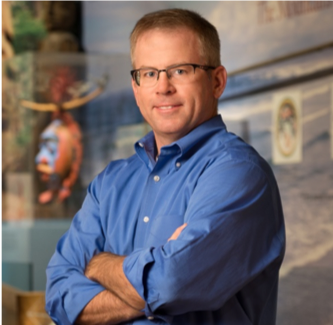 Stephen Nash, Director of Anthropology and the Avenir Conservation Center
Stephen Nash, Director of Anthropology and the Avenir Conservation Center
at the Denver Museum of Nature and Science, is an archaeologist, columnist, historian of science, and stand-up comedian. He is currently studying the Mogollon archaeology of southwestern New Mexico, Indian peace medals in the Museum’s Crane Collection, and the enchanting Russian gem carving sculptures of Vasily Konovalenko. He has written and edited seven books and dozens of peer-reviewed articles and published nearly 40 Curiosities columns for the SAPIENS online magazine. Prior to working at the Denver Museum, he served as head of collections in the Department of Anthropology at the Field Museum in Chicago.
Contact Michelle Jacobson
Email mjacobson@ioa.ucla.edu
Phone
Dr. Justin Dunnavant, Assistant Professor, UCLA Department of Anthropology
Darartu Mulugeta, Undergraduate, UCLA
As increasing calls for science communication encourage archaeologists to convey their research to diverse public audiences, we found it necessary to explore how such research was disseminated in the past. Delving into the archives of Ebony Magazine and the Johnson Publishing Company, we examine the manner in which archaeological research was communicated in the Black popular press from the 1950s into the present. The articles, authors, and subjects provide unique insight into the topics of interest to Black America and speak to the power of the Black press at educating and exciting the public about ground-breaking archaeological research. Engaging Ebony Magazine as a historical archive, we uncover little-known figures and moments in the history of African and African diaspora archaeology and offer suggestions for future directions in science communication research.
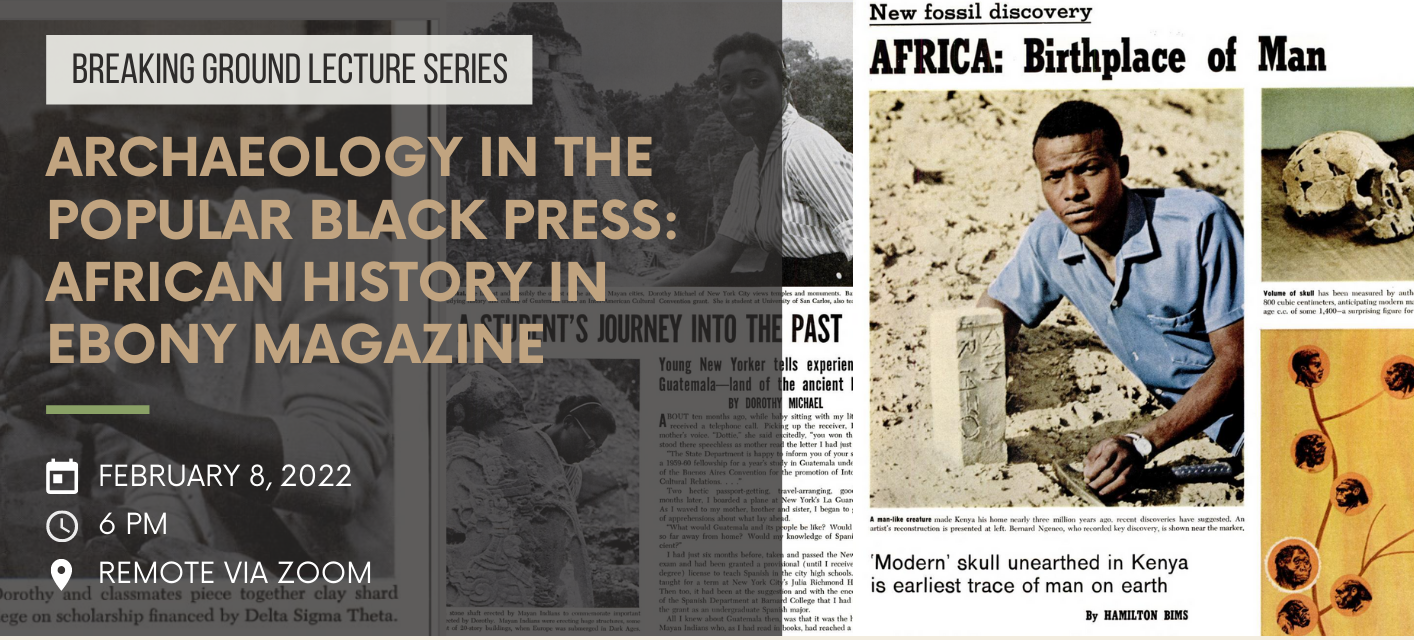
Dr. Justin Dunnavant
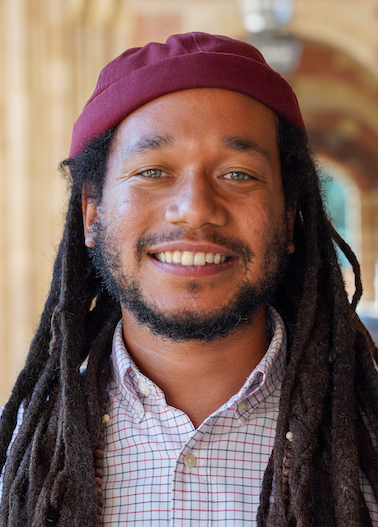 Dr. Justin Dunnavant is an Assistant Professor in the Department of Anthropology at UCLA. His current research in the US Virgin Islands investigates the relationship between ecology and enslavement in the former Danish West Indies. In addition to his archaeological research, Justin is co-founder of the Society of Black Archaeologists and an AAUS Scientific SCUBA Diver. In 2021, he was named a National Geographic Emerging Explorer and inducted into The Explorers Club as one of “Fifty People Changing the World that You Need to Know About.” He is also a member of the Board of Trustees of the National Marine Sanctuary Foundation. His research has been featured on Netflix's "Explained," Hulu's "Your Attention Please" and in print in American Archaeology and Science Magazine.
Dr. Justin Dunnavant is an Assistant Professor in the Department of Anthropology at UCLA. His current research in the US Virgin Islands investigates the relationship between ecology and enslavement in the former Danish West Indies. In addition to his archaeological research, Justin is co-founder of the Society of Black Archaeologists and an AAUS Scientific SCUBA Diver. In 2021, he was named a National Geographic Emerging Explorer and inducted into The Explorers Club as one of “Fifty People Changing the World that You Need to Know About.” He is also a member of the Board of Trustees of the National Marine Sanctuary Foundation. His research has been featured on Netflix's "Explained," Hulu's "Your Attention Please" and in print in American Archaeology and Science Magazine.
Darartu Mulugeta
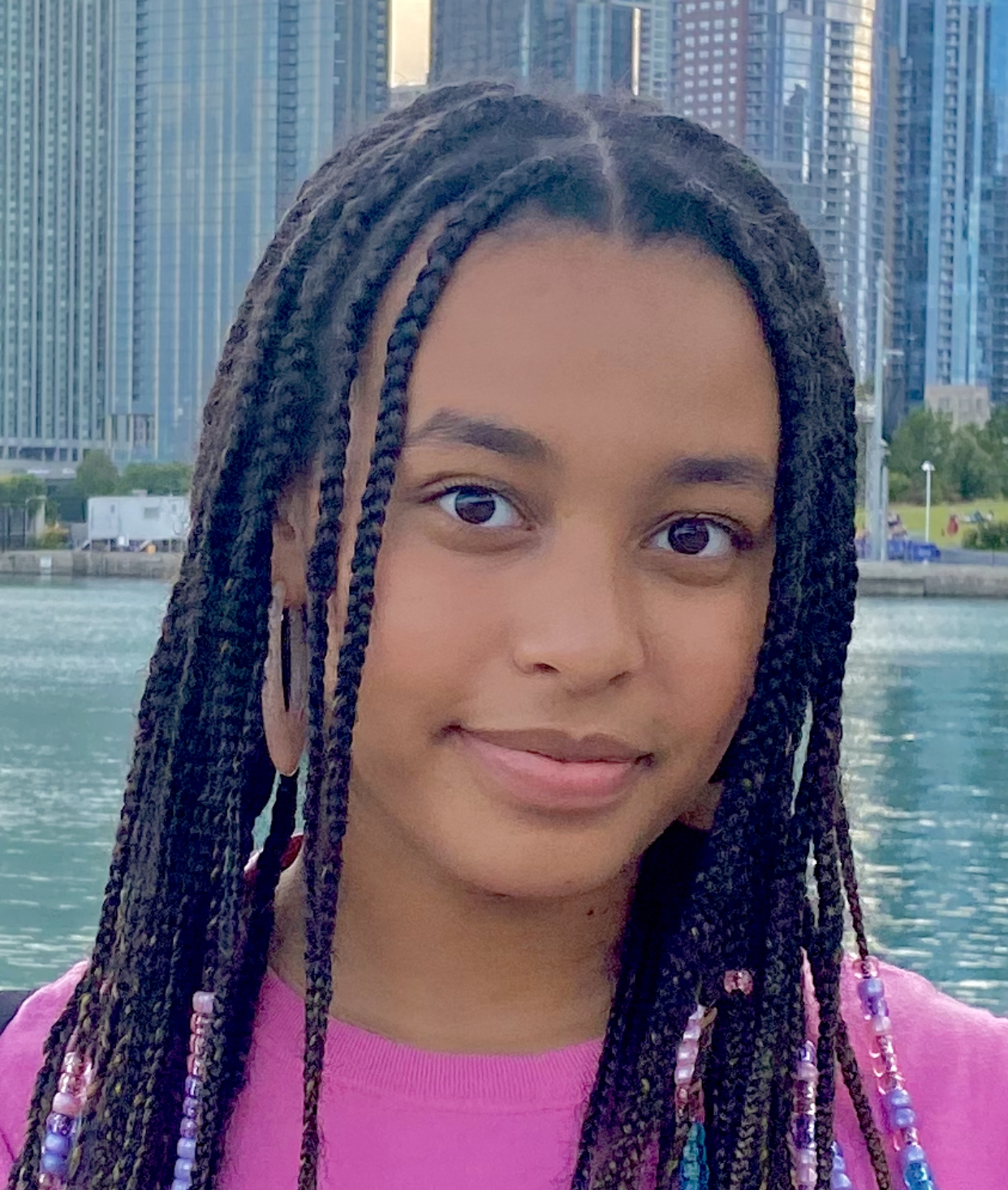 Darartu Mulugeta is a Political Science and Psychology student at the University of California, Los Angeles. She is specializing in methods and computing with the primary goal of studying African communities and history. She is currently part of the African Diaspora Archaeology Lab as a Bunche Research Fellow. Outside of school, she volunteers at the Oromo Legacy Leadership and Advocacy Association as an Oromo language teaching assistant.
Darartu Mulugeta is a Political Science and Psychology student at the University of California, Los Angeles. She is specializing in methods and computing with the primary goal of studying African communities and history. She is currently part of the African Diaspora Archaeology Lab as a Bunche Research Fellow. Outside of school, she volunteers at the Oromo Legacy Leadership and Advocacy Association as an Oromo language teaching assistant.
Contact Michelle Jacobson
Email mjacobson@ioa.ucla.edu
Phone
Join us for a virtual Round Table to celebrate Marija Gimbutas (1921–1994), UNESCO's 2021 Centennial honoree. Marija Gimbutas was a professor of archaeology at UCLA and internationally renowned for her study of the arrival of the Proto-Indo-European languages and culture in Europe. One of her most original (and controversial) contributions has been validated recently by aDNA: the Kurgan Hypothesis and the arrival into Europe of the Proto-Indo-European speakers around 3500 BC. Introduced by Ernestine S. Elster, the participants include James Mallory, David Anthony, and Dorcas Brown with Willeke Wendrich as moderator.
James Mallory was born in 1945 in California and educated at Occidental College (AB, 1963) and UCLA where he received his PhD in Indo-European Studies (European Archaeology) in 1975. In 1977 he joined the Archaeology Department at Queen’s University Belfast from which he retired as Professor of Prehistoric Archaeology in 2011. He has specialized in both Indo-European archaeology where he has published In Search of the Indo-Europeans (1989), The Encyclopedia of Indo-European Culture (1997), and The Oxford Introduction to Proto-Indo-European and the Proto-Indo-European World (2006) and Irish Archaeology (The Archaeology of Ulster, 1991; The Origins of the Irish, 2013; and In Search of the Irish Dreamtime, 2016). He is a member of the Royal Irish Academy.
David Anthony is an archaeologist of the Eurasian steppes (esp. Russia, Ukraine, & Kazakhstan), known for his interdisciplinary research on the origins and spread of Indo-European languages, combining evidence from archaeology, ancient human DNA, linguistics, and comparative mythology. His most significant book, The Horse, the Wheel, and Language: How Bronze Age Riders from the Eurasian Steppes Shaped the Modern World, won the Society for American Archaeology prize for best scientific book in 2010. His entry into the Indo-European debate was facilitated by Marija Gimbutas’s groundbreaking English-language syntheses of eastern European archaeology. He is an associate in the Department of Human Evolutionary Biology at Harvard University, working in David Reich’s ancient DNA lab; and an emeritus professor at Hartwick College, Oneonta, NY.
Dorcas Brown was co-director of grant-supported studies of museum collections in Russia, Ukraine, Kazakhstan, and Hungary (her advanced degree is in Museum Studies); and later of archaeological excavations in the steppes near Samara, Russia and Razdolnoe, Ukraine. Singly or together, Brown and Anthony have published 70+ articles and chapters, including since 2015 three co-authored in Science and three in Nature on a variety of related topics: Bronze Age migrations out of the steppes proven by ancient DNA, with profound implications for the Indo-European debate; the domestication of the dog, from ancient wolf & dog DNA; the domestication of the horse, from ancient horse DNA; the origin of dairying in the steppes, based on dairy peptides preserved in dental calculus; and male adolescent initiation-into-warrior rituals, connected with their discovery and excavation of a Bronze Age boys’ initiation site in the Volga steppes. She is retired from Hartwick College.
Introductions by Ernestine S. Elster. Elster was a graduate student of Gimbutas and participated in four of her archaeological expeditions. She is currently the director of the Mediterranean Laboratory at the Cotsen Institute.
Moderated by Willeke Wendrich, Professor, UCLA Department of Near Eastern Languages and Cultures, is the Director of the Cotsen Institute of Archaeology.
Contact Michelle Jacobson
Email mjacobson@ioa.ucla.edu
Phone
- ‹ previous
- 2 of 7
- next ›



